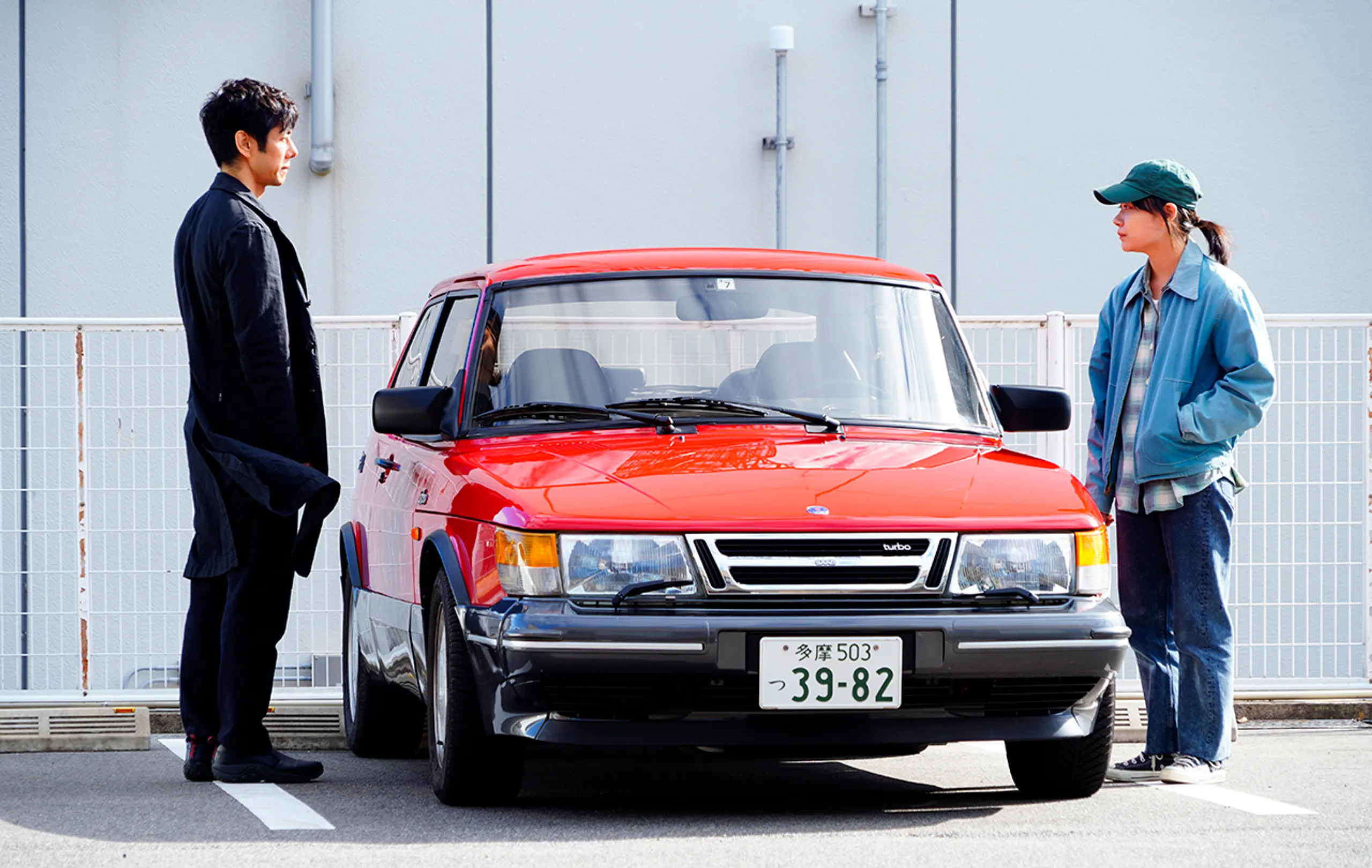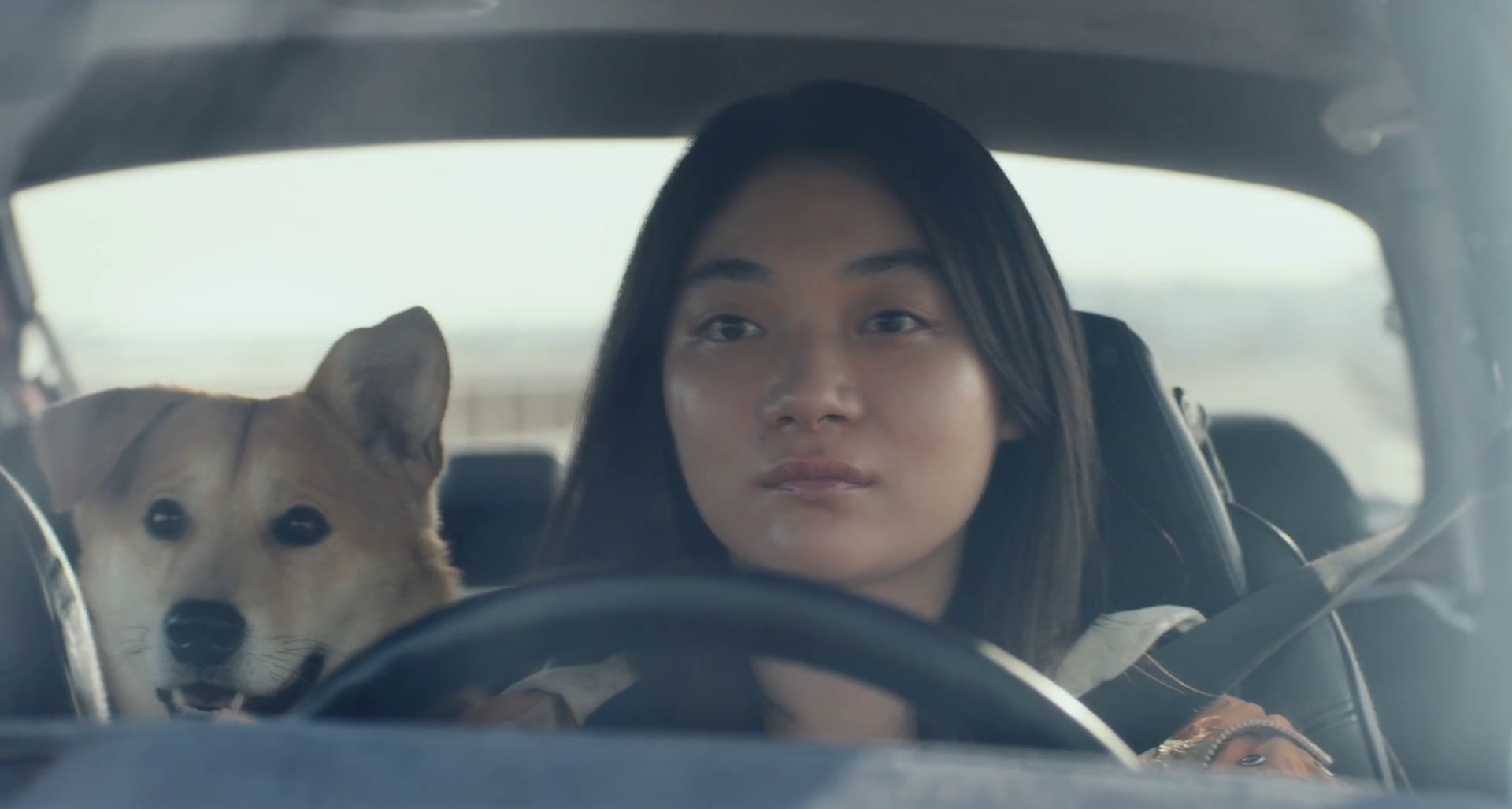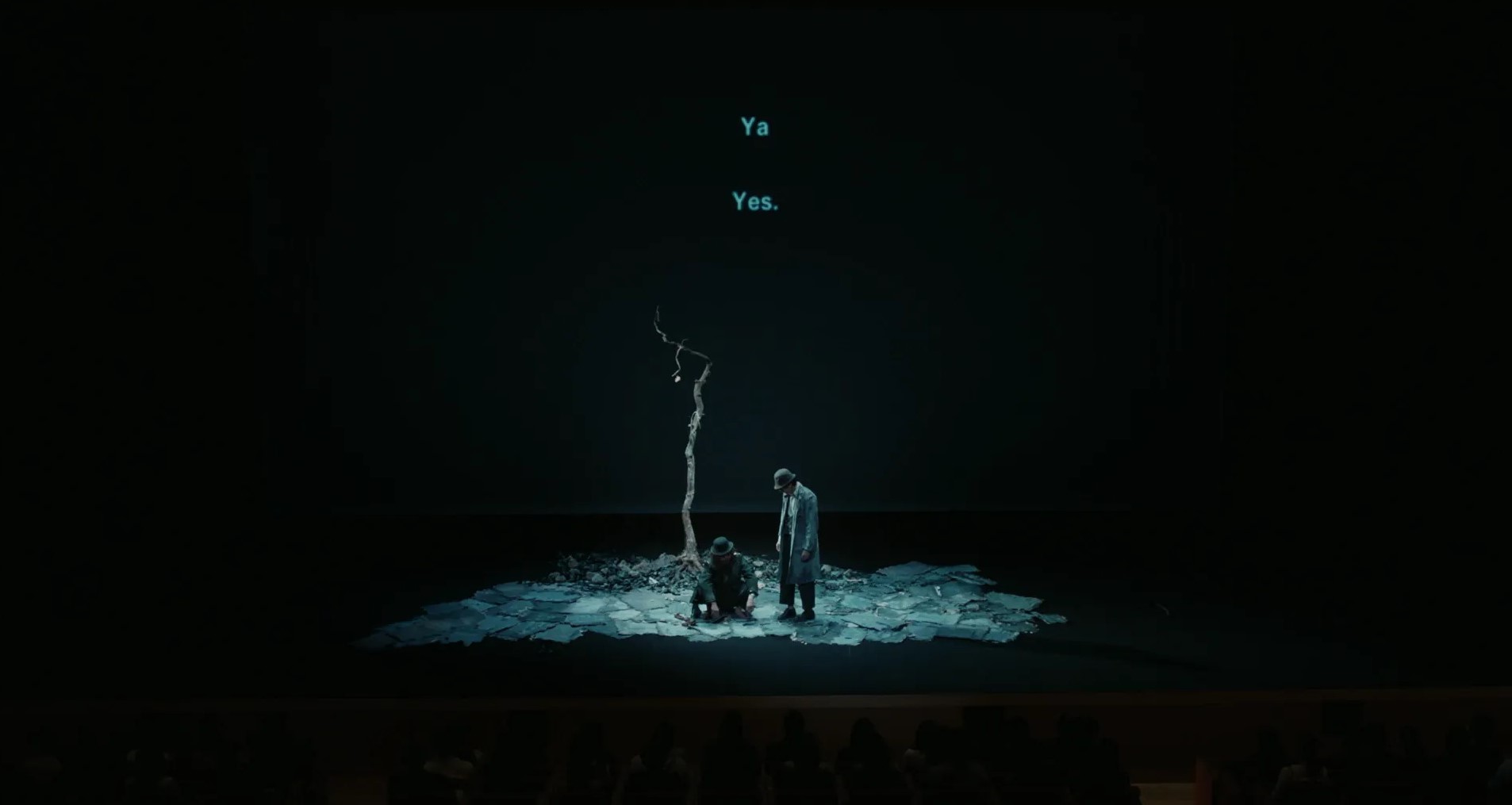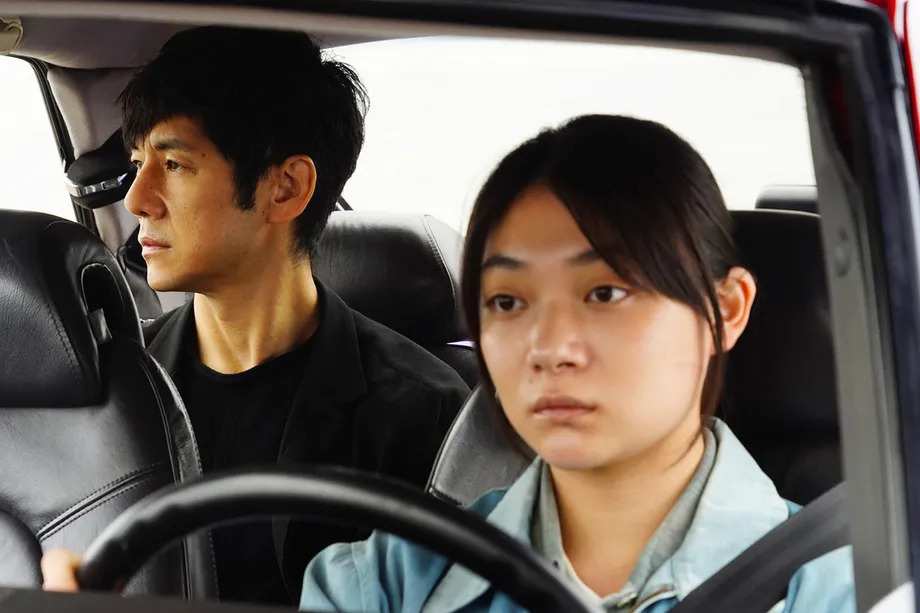‘Drive My Car’ makes the best use of its lengthy runtime (2 hours 59 minutes) and tells the story that is complete, hauntingly beautiful, and complex. After almost every shot, the camera lingers on characters, stretching out the scenes for maximum effect. ‘Drive My Car’ is predominantly based on Haruki Murakami’s namesake short story from the 2014 collection ‘Men without Women.’ While developing the project, director Ryûsuke Hamaguchi (‘Wheel of Fortune and Fantasy’) realized that the original short story doesn’t have enough material for a feature-length production, so he added sections from two other stories from ‘Men without Women’: ‘Scheherazade’ and ‘Kino.’
He also heavily incorporated ‘Uncle Vanya’ into the narrative, which became a relatively easy task because Chekov’s play is already a part of Murakami’s novel. The common theme in Murakami’s short stories and ‘Uncle Vanya’ is alienation, which is a major theme in Hamaguchi’s ‘Drive My Car’ as well. The film also deals with themes such as love, loss, grief, regret, and acceptance. Here is everything you need to know about its ending. SPOILERS AHEAD.
Drive My Car Plot Synopsis
Yûsuke Kafuku (Hidetoshi Nishijima) is an actor who currently works exclusively on stage. His wife, Oto (Reika Kirishima), is a screenwriter. They seem to have a happy, healthy relationship. But deep-seated grief lurks under the surface. They lost their daughter to pneumonia in February 2001. She was only four years old at the time. Since then, they haven’t conversed much about having more children.
Oto isn’t interested, and Kafuku doesn’t see any point in wanting something his wife doesn’t. He is supposed to leave town for jury duty. When his flight gets delayed due to a cold wave, he returns home and discovers his wife is having sex with young actor Kôshi Takatsuki (Masaki Okada) on their marital bed. Earlier, after Kafuku’s performance in a multilingual production of ‘Waiting for Godot,’ she introduced him to Kôshi, claiming that the latter often worked together with her.
Afraid that he will lose Oto if he confronts her about her infidelity, Kafuku chooses to say nothing to her. He has a minor vehicular accident and is told that he has glaucoma. Oto shows up at the hospital, acting completely normal and full of care for him. That night, after they return home, they have sex, and Oto continues with the story she began telling him in the opening scene. At this point in the film, the story seems to indicate that she knows that Kafuku is aware of her infidelity.
The following morning, Oto tells Kafuku that she wants to speak to him in the evening. Fearing that their relationship will change irreversibly after Oto tells him whatever she has to say, Kafuku delays his return to home. When he finally arrives, he discovers that his wife has died of a cerebral hemorrhage in his absence. During a subsequent performance of ‘Uncle Vanya,’ in which he portrays the titular character, Kafuku has a mental breakdown.

Two years pass and Kafuku agrees to a residency in Hiroshima. He will direct a production of ‘Uncle Vanya.’ He takes his red 1987 Saab 900 Turbo with him. However, he is told that he will have to have a driver accompanying him as long as he is associated with the organizers because of a past accident caused by another artist. This is how Kafuku meets Misaki Watari (Tôko Miura). As Kafuku discovers, his quiet and stoic new driver is exceptionally competent at her job. Kafuku’s red Saab is an old car, and there are multiple things that are wrong with it. And yet, Watari quickly learns how to drive the car without causing any discomfort to her passenger.
Meanwhile, Kafuku begins casting for the multilingual production with actors that can speak Japanese, Mandarin, Korean, and other languages. He also hires a mute actress who communicates through Korean Sign Language. She is later revealed to be the wife of one of the organizers. In the role of the titular character, Kafuku ends up casting Takatsuki, his wife’s final lover, much to the surprise of Takatsuki and everyone around them due to the age disparity between the actor and the character.
Drive My Car Ending: Why Does Misaki Watari Have Yûsuke Kafuku’s Red Saab? Why Does She Have a Dog?
The movie’s final scene finds Watari in South Korea, with the COVID-19 Pandemic is in full swing. Evidently, some time has passed off-screen between this scene and the previous one. Watari purchases groceries before getting into the red Saab, where a dog is waiting for her. The last few shots of the movie involve Watari driving through an open road.
Unlike in the original story, where we learn about Kafuku’s wife’s infidelity when he speaks about it to Watari, the film’s narrative is quite linear. This must have posed some issues for Hamaguchi and his team as they are unable to introduce their secondary protagonist until 45 minutes into the film. They negate this by stretching the prologue to over 40 minutes.
Like Kafuku, Watari is burdened by her past. She grew up in a village in Hokkaido. Her father was absent, and her mother was abusive. During a landslide, she chose not to save her mother, which has haunted her since then. Her mother was suffering from dissociative identity disorder. She often thought of herself as a young girl named Sachi. According to Watari, whatever good qualities her mother had left were in Sachi. When Watari decided not to get her mother out before the landslide, she knew that she was condemning Sachi as well, and she still did it.

Both Watari and Kafuku punish themselves for the better part of the film. The latter believes he caused Oto’s death for not returning to his home sooner. Towards the end of the film, Watari and Kafuku go to the former’s village and visit the ruins of what used to be Watari’s home. Covered in snow, the destroyed house looks like a carcass of a great beast. Standing beside it, both Watari and Kafuku confront their past and earn the ability to move on.
The fact that Watari now has the red Saab means that Kafuku gave it to her. The car was a tangible connection between him and Oto. By letting it go, he demonstrates that he has moved on. Similarly, Watari has relocated to Korea in search of a better life. She now has a dog and has gotten rid of the facial scar that her mother gave her. Life will never be without its challenges. However, as Watari drives through a wide and bright road, she only thinks of the future.
Why Does Yusuke Kafuku Agree to Play Uncle Vanya?
As mentioned above, Kafuku’s last attempt to play Vanya ended in disaster. He is an honest enough actor to know and admit that he is not ready to put himself through the pain of interpreting Chekov’s characters. But this approach toward his sense of guilt slowly changes as the film progresses. If one of the reasons for this is Watari, who is of the same age that Kafuku’s daughter would have been if she were alive, the other reason is Takatsuki. Oto’s death has left the younger man feeling empty.

Furthermore, his career has suffered greatly because of improper conduct. It seems that he seeks Kafuku out in an attempt to find himself but ends up walking in the path of self-destruction beyond the point of no return. Takatsuki gets arrested after the man he beat up dies of his injuries. The organizers subsequently tell Kafuku that he has two options — either cancel the show altogether or play Vanya himself. It appears that after he visits Watari’s village, Kafuku gains the courage to face his past and embrace the inevitable changes in his life.
Like in Chekov’s play, Kafuku used to think that uncertainty was better than knowledge when it came to his wife because that way, he would at least have hope. But then again, false hope often leads to stagnation. Kafuku learns to rise above it. He struggles to portray Vanya after agreeing to the second option. However, by being honest to himself and his emotions, he delivers a believable performance.
Read More: Is Drive My Car Based on a True Story?


You must be logged in to post a comment.